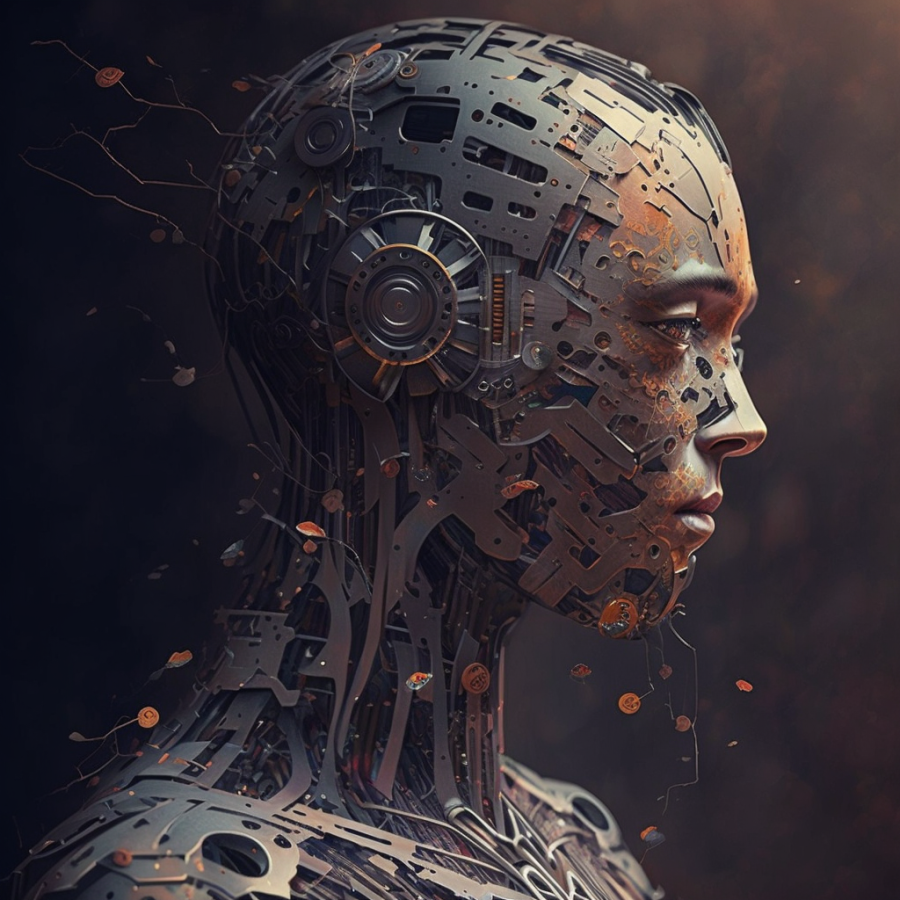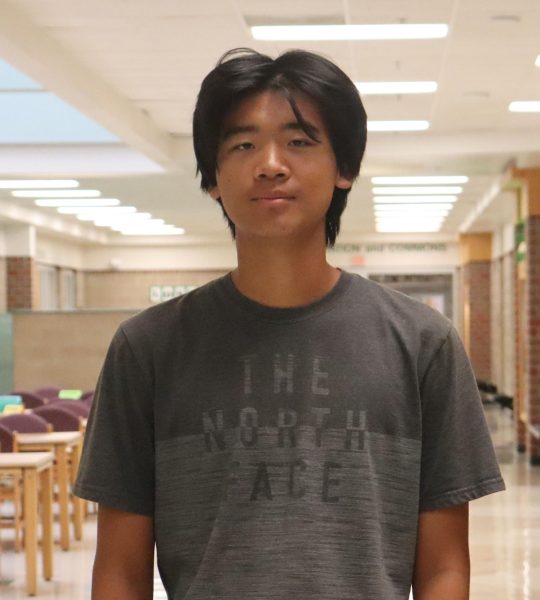Controversy over artificial intelligence
Simulated thinking poses both massive innovation and concerning dangers
The image generation AI, Midjourney, was the prompt “Artificial Intelligence” in which it generated the image. Midjourney has been restricted by the College Board as well when it comes to aiding performance tasks.
May 4, 2023
The phrase artificial intelligence (AI) has been thrown around everywhere and for good reason. AI has been a part of daily life for everyone. Common voice assistants like Siri, Alexa and Google Assistant are all powered by AI. Not only are they in the obvious devices, but AIs can also be found in medicine, face recognition and autocorrect.
In medicine, AIs can detect chronic diseases with lab data early to make treatment more effective. Face ID on iPhone also requires AI to recognize a person’s face.
A few days ago, Grammarly, the grammar inspection software, introduced GrammarlyGO to its beta. GrammarlyGO is an extension of the AI Grammarly already uses in its grammar services. The new addition uses chatbot software based on GPT-4, another powerful AI software capable of doing complex tasks. The controversial tool of AI in education is exacerbated by the use of AI to write complete essays. In response, schools and organizations are making new steps in restricting AI.
In an official College Board statement regarding the use of AI, “Students are categorically prohibited from using any and all Artificial Intelligence tools (e.g. ChatGPT or DALL-E) or essay writing services (e.g. Chegg or Course Hero) to guide, brainstorm, draft, or create student work related to any AP assessment, including written projects and performance tasks.”
The College Board strictly prohibits any AI tools, however, students may not be aware of what is classified as AI. This causes an issue as some teachers may believe Google spell check and Grammarly are allowed while others restrict their usage.
In the classroom, Chat-GPT and other chatbot software have been found writing essays and other forms of academic dishonesty. When it comes to essays, Turnitin and Chat-GPT can detect if the writing is original or dishonest, therefore cheating is theoretically impossible. However, using the services to brainstorm or plan is also prohibited by the College Board.
“I don’t think Chat-GPT writes good essays at all, it isn’t even that useful for brainstorming,” junior Elisey Kolesnikov-Cherenkov said. “I don’t use it for school, but it is interesting to talk to it to see what it generates from time to time.”
The current chatbots are not able to be used in more demanding classes as the service does not provide any benefit, yet grammar checkers are still being used to help bolster essays at Millard West and throughout the world. However, the free and available chatbots are limited and are not being fully developed as other private AI models.
“Right now, what we’re seeing is things like GPT-4 eclipses a person in the amount of general knowledge it has and it eclipses them by a long way. In terms of reasoning, it’s not as good, but it does already do simple reasoning,” Geoffrey Hinton said, the godfather of deep learning and artificial intelligence. “Right now, they’re not more intelligent than us, as far as I can tell. But I think they soon may be.”
This has major implications in education and could impact future students looking for employment. The corporation IBM has already begun the process to replace 7800 jobs with AI. Certain sectors will always require human ingenuity, but others may not. The additional threat of AI taking jobs has caused many experts to lobby for AI implementation in the school system.
Colleges have begun using AIs to assist personalized learning to further benefit students. Yet, the College Board restricts the usage of simulated intelligence for any assignment or performance task. As of today, Millard Public Schools has not implemented any tools to make use of the AIs.







